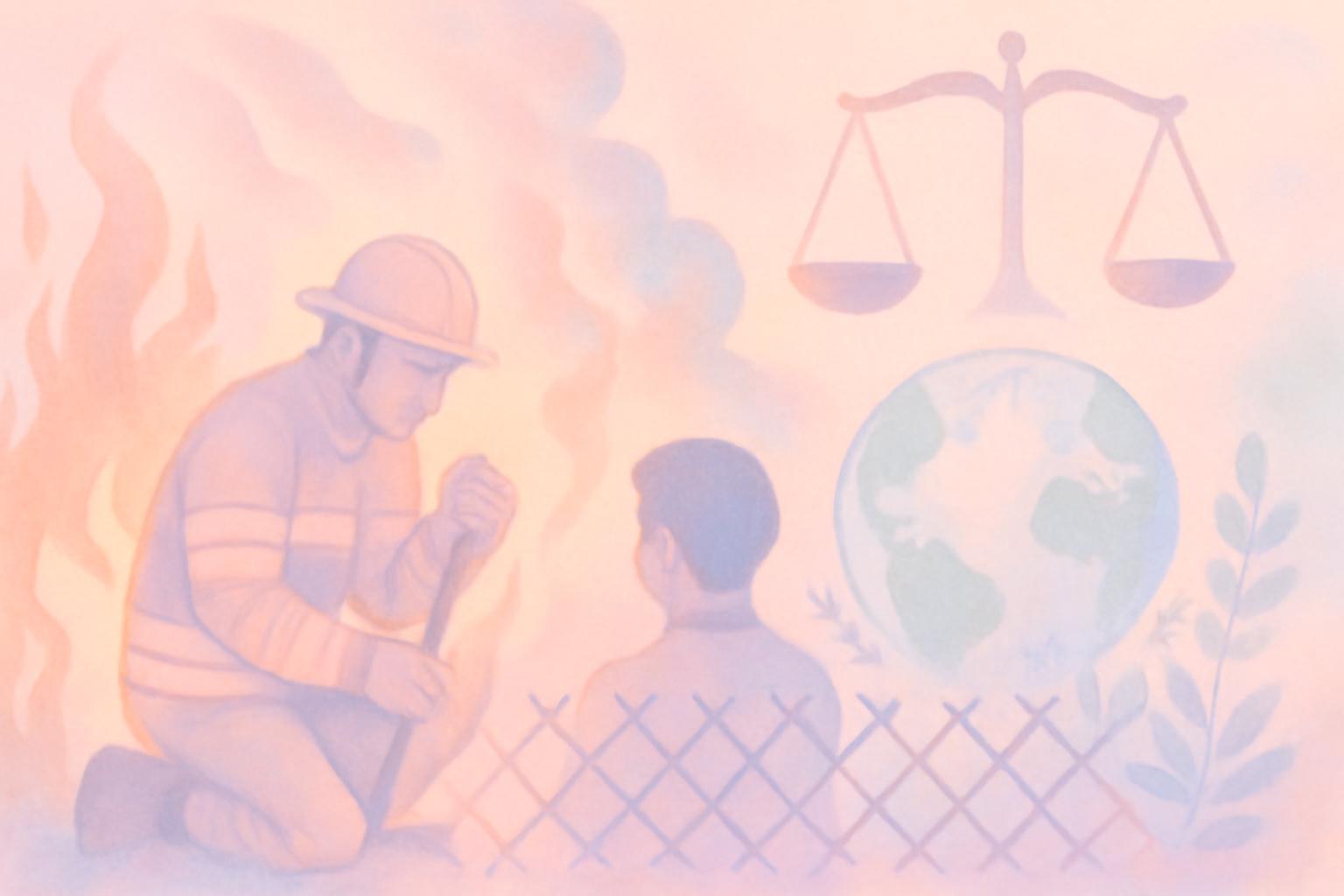Quiet dawn over the hills finds the embers of a wildfire held back by brave hands, even as a sight unseen tightens its grip elsewhere. In a federal operation carried out as flames pressed toward the forest, two workers from a private fire company were detained during the arduous work of saving lives and land. Of forty-four checked, two were taken into custody and forty-two were dismissed, a ripple that touched families and communities. Authorities insist the firefighting mission continued, and the bear of the blaze—Bear Gulch—has burned for months, its smoke painting the sky. Foresters had asked for a review of who feeds the flame-fighting engines, and the governor has asked for an inquiry, expressing deep concern. This moment sits within a larger current: immigration enforcement that has grown more aggressive in the years since that administration began, a drumbeat that marches across borders and into the breath of communities.
We must now name what the smoke obscures: the harm to Mother Earth, the harm to our shared breath, and the harm that comes when the world is ruled by a market theology that measures worth by borders and ballast sheets of profit. The land speaks in quiet, patient terms—the rivers that remember the first rain, the trees that shelter creatures large and small, the soils that hold the memory of every root. When a system treats people as disposable tools for enforcement, it also treats the soil, the air, and the waters as expendable assets to be managed, taxed, or policed. The flame feeds on neglect, extraction, and fear, and in the same breath, the same culture that profits from private firefighting or punitive raids profits from the illusion that safety can be bought, measured, or walled off from those who come seeking shelter, work, or a chance to keep their families alive.
This is not merely a policy dispute; it is a reckoning with colonial sins that stain the land and its caretakers. Settler logics carved lines across maps and lives, severing kinship with place and turning protection into possession. The private interests that steer much of today’s emergency response trade safety for speed, care for community for cash flow, and healing for headlines. The toxin is not only the chemical spray on a blaze but the ideological serum that tells us some lives are more legitimate than others, that borders are more sacred than the people who breathe the same air, drink from the same watershed, and fight the same fire beneath the same sky. In such a system, the Earth pays in hotter summers, longer droughts, and forests that remember the scars of greed as if they were wounds of wind and rain.
Let us heal instead with a vision braided from soil and sky: accountable care that honors every worker, every family, and every creature who calls this land home; borders that protect rather than punish; an economy that treats breath as sacred, labor as dignity, and rescue as a shared deed rather than a private profit. Let the fires be met not with punitive raids but with restorative justice—public safety rooted in climate justice, inclusive labor, and neighborly trust. May we listen to the rivers’ counsel, tend the wounds of the wind, and learn that true protection arises when we guard the life-ways of the Earth and honor the right of every person to stand with their hands ready to help, their hearts ready to heal. In this awakening, the healing of humanity and the healing of Earth become one durable flame.
